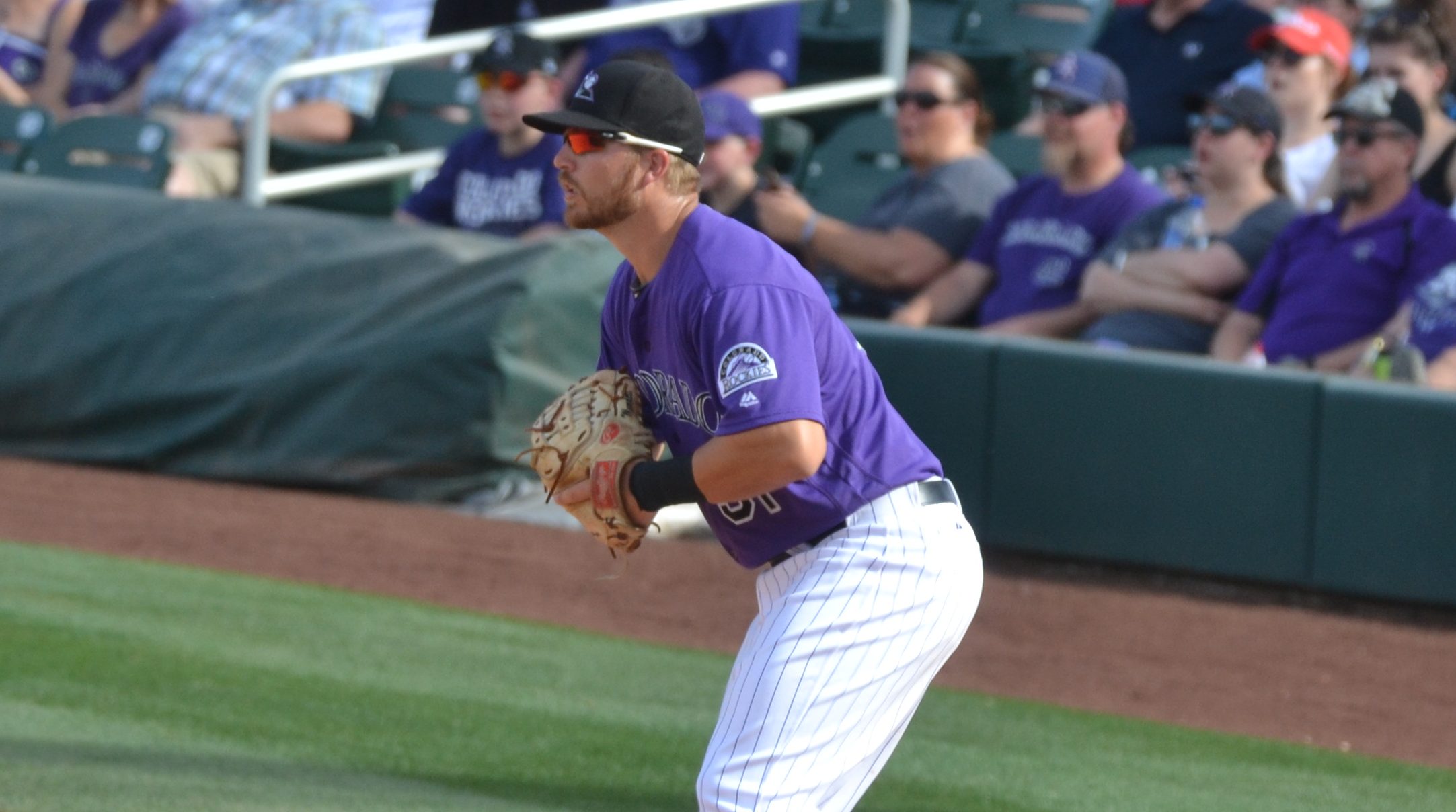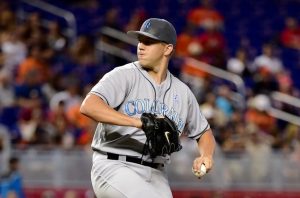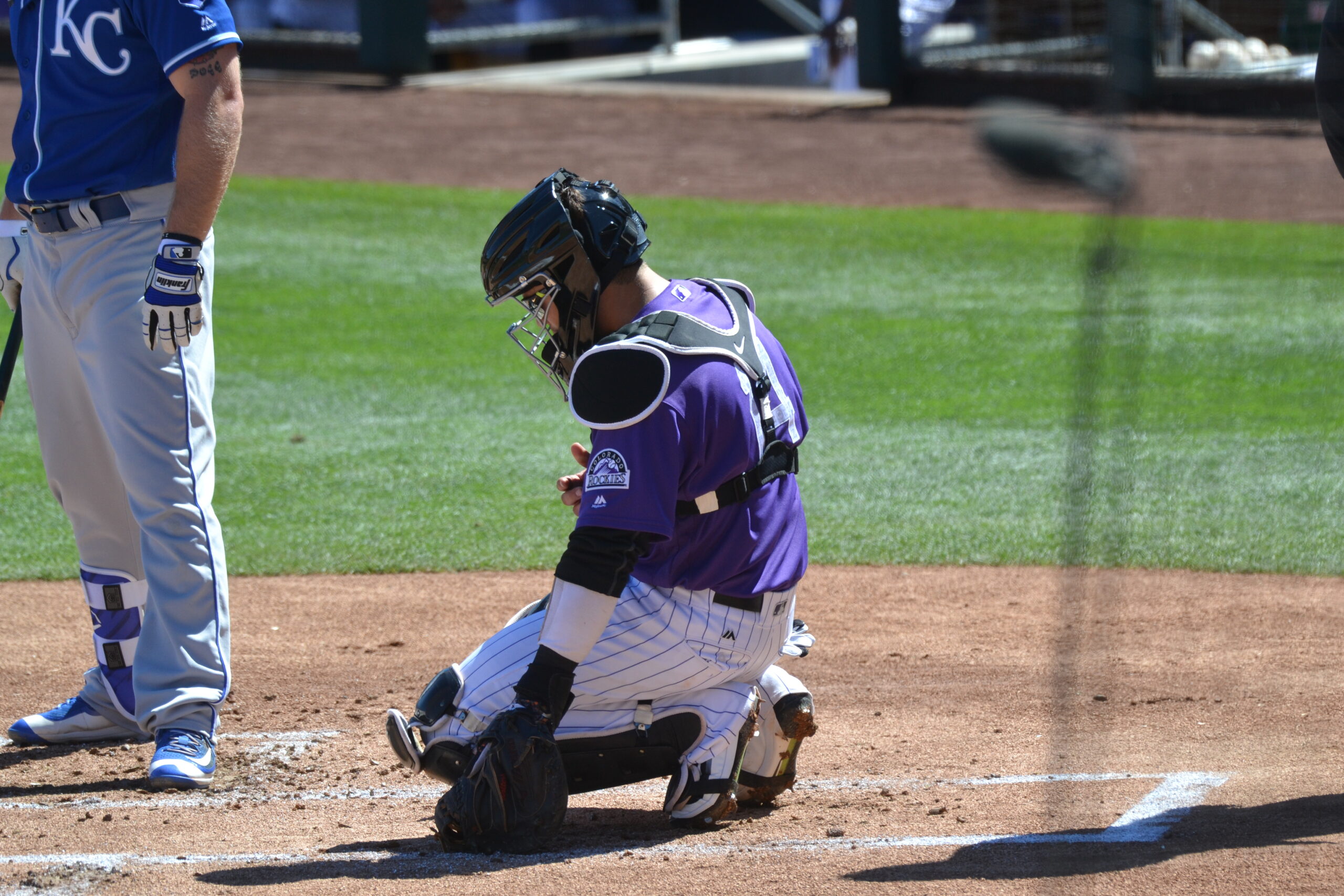© 2026 ALLCITY Network Inc.
All rights reserved.

Ever since the Colorado Rockies acquisition of Ian Desmond to play first base, the word “versatility” has been thrown around so much it almost seems to have lost its meaning. Some scoff whenever the word is uttered, others find it to be a comforting blanket they can wrap themselves in, hoping that it pays off for a team and fan base desperate for some highly competitive baseball.
Many on the outside see Jeff Bridich’s recent moves and characterize them as unique or outside-the-box and while both of those things may be true, they’ve actually been perfectly consistent with a slowly manifesting long term plan. In Part 1 of this conversation, we talked about the philosophy guiding the kind of team-building the Rockies GM is aiming for and why it makes more sense in the modern game not to shoehorn certain types of players into limited roles.
So BSN Denver decided to ask some of his players what they think about this theory.
DJ LeMahieu, one of the few players on the roster who won’t be asked to move anywhere this season pretty much no matter what, sees positional versatility as a benefit in one particular area.
“I think around the league, defense is becoming more of a priority,” he said. “Especially on this team, defense is a priority and guys that can play multiple positions are obviously very valuable especially through the stretch of a long season.”
This goes back to something we’ve been calling the “No Holes” doctrine. Or sometimes the “Finish the Thought Theory.” If you’ll forgive a cross-sport analogy, it doesn’t make a ton of sense to prioritize defense in each of the other four positions in the NBA if your center can’t defend the rim and/or grab a rebound. In fact, having a great defensive team that is poor in the rebounding department fails to complete, or finish, the thought much in the same way that having a defensively deficient first baseman does.
In a vacuum, statisticians may argue that over the course of a season, defense in left field or at first base really doesn’t add up to much, but this fails to consider how the rest of the defense stacks up. Single numbers that try to measure a player almost always miss the context. It seems pretty obvious at this point that Bridich surveyed the landscape of big, lumbering first baseman on the free agent market and came to the conclusion that sticking one of them at first could be potentially annoying at best and disruptive at worst for the rest of his uber-talented infield. What good does it do for Nolan Arenado to make a dive and a throw from the seat of his pants if the guy on the other end of that throw is standing there not because of his glove, but because of his bat?
Remember Wilin Rosario? Good guy but the stats bely what his failings at first did to the confidence of his teammates.
Of course, Desmond won’t be there to open the season, but we talked to the guy who will be, obviously one who believes in the power of wearing many hats … er, gloves.

“You just gotta put in as much work as you can out there and feel as comfortable as you can. Do anything that gets you in the lineup,” said Mark Reynolds. “The more positions you play, the more chances you have to play. If you look around at our roster, every position was pretty much set and being versatile off the bench gives the manager a lot of options play with lineups, give guys days off, things like that. Gives him confidence in you in whatever position he puts you in.”
Reynolds has gotten used to the program and has a bit of advice for the younger guys as well.
“Most managers I’ve ever had will tell you the day before,” he said about playing different positions. “You can get a little extra work in before the game. When you know you are playing the next day as a bench guy, you prepare differently and mentally. You’ve got to be ready to go.”
Having multiple guys “ready to go” who can help in multiple ways adds value well beyond just trotting out the best defense possible even through injuries. The defense aspect should not be underrated especially for a young pitching staff at Coors Field that can use all the help in preventing runs that they can get. It should also be remembered when trying to account for the Coors Field Hangover Effect, as good athletic defense tends to slump a lot less often than bats and arms. There’s a reason the near-mistake-free 2007 team went on the run they did.
But speaking of running, and of things that do not slump, another area in which Bridich has refused to take a hit just so he can add a player with one elite skill is team speed. More on this in an article to come but for our purposes here, it’s important to remember that the whole point of Desmond, Charlie Blackmon, and players in that mold, is that they don’t subtract in any area. Where some pundits see players as an extrapolated value that either comes out plus or minus — and they remain unconcerned how — others see players as toolsets that need to fit together properly in order to build a house; Having 12 fantastic power drills doesn’t do you much good in the moments when you need a good old fashioned wrench.
With the lineup they have, this is why we were among the least surprised that Bridich was willing to sacrifice a little bit of power at first base, where it traditionally belongs, in favor of helping the team in areas that it needed more which multiplies their effects: speed, defense, and … you guessed it … positional versatility which adds depth for a team that constantly struggles to stay healthy.
The irony, of course, is that it is Desmond who is currently out with injury. But the part that fits perfectly is that the Desmond signing did not happen in a vacuum either. It was followed by the Reynolds signing. It all comes back to something Tyler Anderson told us:

“We have plenty of depth right now. I feel like Jeff has done a great job getting a ton of players. I think the organization top to bottom is as strong as it has ever been. The injuries are unfortunate and I sympathize with those guys, but we are going to be OK.”
As bad as the bug has felt so far, the injuries are just starting. That’s just the game of baseball. As Adam Ottavino told us once, “Everyone is always a little hurt in this game.” Baseball is a war of attrition. And in that war, a manager needs to have options in order to be able to execute the best strategies.
Tony Wolters, a player who knows a little bit about versatility being a catcher and middle-infielder, is already thinking like a manager his second year in MLB.
“There’s no worry, you know? In the late innings, we can pinch-hit, do double-switches, all that stuff,” he said. “It’s always good having guys that can play multiple positions. This last year, being in the National League really showed me how much versatility is worth. I think it’s awesome that almost every guy here can play multiple positions, it’s fun having that.”
A pitching staff full of young first-round picks oozing with potential and a roster full of dudes who can be moved around the diamond and the lineup like Lego pieces? No wonder Bud Black picked Colorado.

We should be careful in overstating this. When (or, y’know theoretically if) the team is fully healthy, everyone’s spots are pretty set in stone. It helps that guys can move around. It really helps that everyone on the field is capable of making spectacular plays on defense. It helps that everyone other than Arenado can cause havoc on the bases. (Yes, even Carlos Gonzalez, there is more to being a good runner than stolen bases.) But ultimately what Jeff Bridich has attempted to achieve here — and whether or not he has will be the story of the season — is to create as consistent a roster as possible for a team that has to deal with the most volatile conditions arguably in all of sports.
Remember Corey Dickerson? Of course, you do. Good guy. You remember the way his bat could inspire fear every time he stepped to the plate. You remember he could hit doubles off of pitches that had bounced. You remember some of the most no-doubter-y no-doubters in recent Rockies history. But you also remember the game in San Diego a few years ago (you’re pretty sure it was San Diego) where the Rockies lost on a relatively shallow sacrifice fly when Dickerson’s noodle arm quintuple-hopped one … to third base … ish.
If David Dahl or even — gasp! — Gerardo Parra is the left fielder in that situation, the runner doesn’t even leave and they might still be playing that game.
The point is this: In a sport where the best of the best only succeed at the plate about a third of the time, and where home runs were hit in about three percent of the at-bats a year ago, maybe it’s worth stacking the roster with guys who can at least catch, run, and throw the ball all the way to home plate with the game on the line.
Comments
Share your thoughts
Join the conversation




